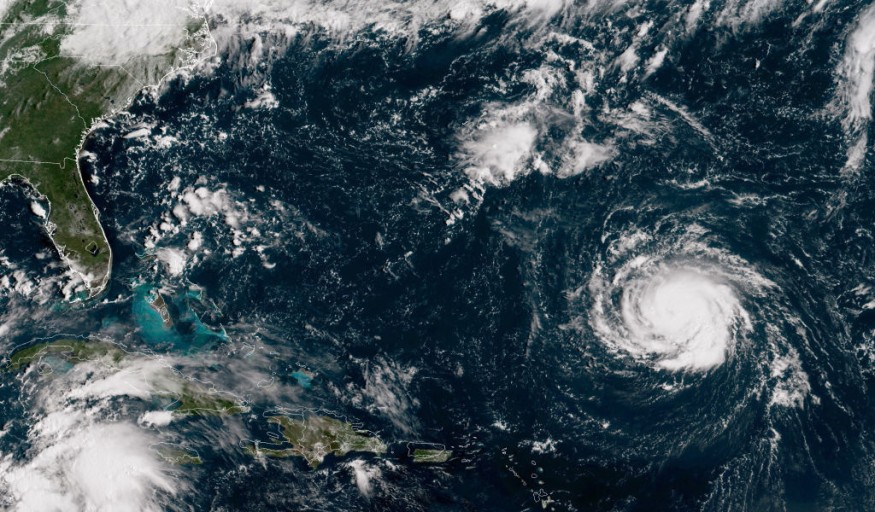During the early morning hours of Saturday, the National Hurricane Center issued tropical storm warnings for parts of the South Carolina and North Carolina coastlines after a rapidly developing low-pressure system along the Southeast coast of the United States strengthened into Tropical Storm Colin.

This will be the third named storm of the Atlantic hurricane season.
Colin Approaching
Around 2:00 p.m., Colin was whirling approximately 10 miles southwest of Myrtle Beach on Saturday, heading northeast at a pace of only 7 miles per hour.
Colin's sustained wind gusts were 40 mph, just above the 39-mph threshold required to classify a system as a tropical storm.
The National Hurricane Center categorized Colin as "disorganized" as of Saturday afternoon, as it continued to deliver heavy rainfall and high gusts near the North Carolina coast.
The National Weather Service's New River observation station reported 0.1 inch of rain due to Colin in the last three hours.
Colin is expected to be a substantial rainmaker throughout the Fourth of July weekend, mainly for the northern coast of South Carolina and almost the whole North Carolina coast as it moves northeastward.
AccuWeather Senior Meteorologist Adam Douty stated, "Locally heavy rain and strong gusts are predicted along the storm's course through Sunday."
Expected Strength
According to AccuWeather analysts, many coastal locations should anticipate 2 to 4 inches of rain from Saturday through Monday.
Colin has been rated less than one on the AccuWeather RealImpactTM Scale for Hurricanes due to the limited consequences forecast.
Disrupting Vacation Plans
The appearance of Colin will undoubtedly disrupt vacation plans along a popular beach vacation stretch of the beachfront.
Many tourist attractions are in the path of a tropical storm warning in both South Carolina and North Carolina, while the weather in South Carolina may improve just in time for Independence Day.
"There will be strong surf, severe rip currents, and coastline erosion in the storm's path this weekend," Douty added.
North Carolina's famed Outer Banks are also under a tropical storm alert.
This popular tourist destination has also been dealing with the ravages of coastal erosion caused by all sorts of hurricanes and the creeping effects of climate change.
At least two homes in Rodanthe, which stands along a particularly narrow and endangered stretch of the Outer Banks, collapsed into the Atlantic Ocean in May this year, putting residents on edge.
Another oceanfront mansion was destroyed by the Atlantic Ocean during a hurricane a few months ago.
Increased Threat
Local officials have been aware of the threat of coastal erosion and the expanding Atlantic and have taken steps in recent years to safeguard treasured waterfront areas.
Danny Couch, a local commissioner in Dare County, North Carolina, which includes the majority of the Outer Banks settlements, told AccuWeather earlier this year that "the storms are getting a bit more violent" and that residents will "have to adapt" to a new normal.
AccuWeather experts predict that Colin will take a right turn by mid-afternoon on Sunday and begin traveling out to sea, where it will lose wind intensity as it crosses open waters.
Related Article : Exposure to Major Disasters Can Cause Long-Term Mental Health Problems
For more climate and weather updates, don't forget to follow Nature World News!
© 2025 NatureWorldNews.com All rights reserved. Do not reproduce without permission.

